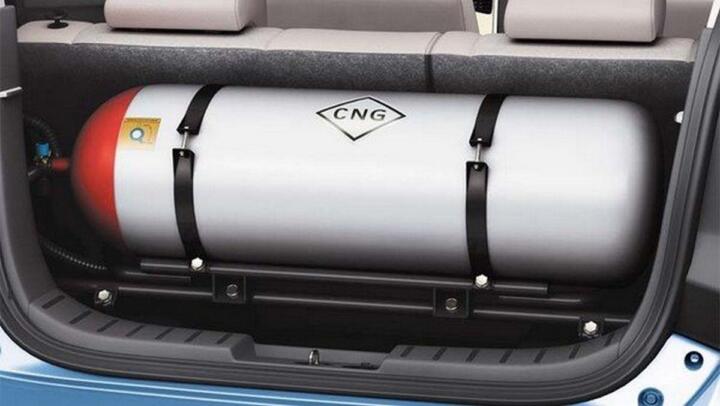The Federal Government has disclosed that the anticipated cost for Nigerians to convert their petrol vehicles to run on Compressed Natural Gas (CNG) falls within the range of N300,000 to N600,000. Engr. Michael Oluwagbemi, the Chief Executive Officer of the Presidential Compressed Natural Gas Initiative (P-CNGi) Steering Committee, shared this information in an interview with Daily Trust.
This revelation comes on the heels of the official commissioning of CNG conversion centers and a practical demonstration of converted CNG vehicles in collaboration with the private sector at the head office of Femadec Group, a key partner located in Lagos.
In an expansive discussion, Oluwagbemi disclosed that the government’s strategic plan involves establishing 10,000 CNG conversion workshops nationwide in the near future. Moreover, he unveiled plans for Nigeria to embark on assembling and manufacturing CNG conversion kits domestically, a move expected to generate substantial employment opportunities.

“While we are presently importing conversion kits, this initiative aims to provide relief for Nigerians by offering discounts on immediate conversion costs. Additionally, the committee is exploring flexible payment options as part of ongoing reviews of the CNG initiative, with a commitment to providing more discounts and incentives,” he elaborated.
Beyond the domestic front, the CEO of P-CNGi emphasized that the Federal Government’s drive to transition to CNG-powered vehicles is poised to attract investments exceeding $2 billion into the Nigerian economy. Oluwagbemi underscored the transformative potential of this initiative, projecting the creation of more than 250,000 employment opportunities for various professionals across the country.
The Federal Government’s proactive stance on CNG adoption reflects a multifaceted strategy encompassing economic, environmental, and employment considerations. As the nation grapples with the economic implications of conventional fuel dependence, this shift toward CNG represents a significant step in the pursuit of sustainable energy solutions.
The commissioning of CNG conversion centers serves as a tangible manifestation of the government’s commitment to fostering collaboration with the private sector. The partnership with Femadec Group not only demonstrates a unified effort but also showcases the practical application of CNG conversion technology.
Looking ahead, Oluwagbemi outlined the government’s ambition to establish a network of CNG conversion workshops, a strategic move that aligns with broader efforts to decentralize and make conversion services more accessible to citizens across the nation. The establishment of these workshops not only supports the convenience of CNG adoption but also presents an opportunity for local entrepreneurs to participate in the burgeoning clean energy market.
In the quest for energy independence and sustainability, the decision to explore local assembly and manufacturing of CNG conversion kits is a noteworthy development. This move not only contributes to reducing import dependence but also stimulates domestic industries, fostering technological advancements and skill development within the country.
As Oluwagbemi highlighted, the employment opportunities arising from the CNG initiative are expected to be diverse, catering to professionals with varied skill sets. This includes roles in manufacturing, assembly, maintenance, and other ancillary services, thereby creating a ripple effect of economic benefits that extend beyond the immediate scope of the initiative.
The commitment to offering discounts on conversion costs and exploring flexible payment options further demonstrates the government’s responsiveness to the financial concerns of citizens. By alleviating immediate financial burdens, the initiative aims to encourage a more widespread adoption of CNG technology, thereby accelerating the transition toward cleaner and more sustainable energy sources.
In the broader context of the Nigerian economy, the projected influx of over $2 billion in investments as a result of the CNG initiative represents a significant boost. This capital injection has the potential to stimulate economic growth, create a conducive environment for innovation, and enhance the overall competitiveness of the nation in the global market.
The transformative impact of transitioning to CNG-powered vehicles extends beyond economic considerations. It also addresses environmental concerns, offering a cleaner and more eco-friendly alternative to conventional petrol vehicles. As the global community intensifies its focus on combating climate change, such initiatives position Nigeria as a proactive participant in the global effort to reduce carbon emissions and mitigate the impact of transportation on the environment.
In conclusion, the Federal Government’s unveiling of the projected costs for converting petrol vehicles to CNG, coupled with its comprehensive initiatives, marks a significant milestone in Nigeria’s journey toward sustainable energy solutions. The collaborative efforts with the private sector, the establishment of conversion workshops, and the exploration of local assembly and manufacturing underscore a strategic and forward-thinking approach. As the nation embraces CNG technology, it not only positions itself for economic growth and environmental sustainability but also unlocks a myriad of employment opportunities for its citizens.
Support InfoStride News' Credible Journalism: Only credible journalism can guarantee a fair, accountable and transparent society, including democracy and government. It involves a lot of efforts and money. We need your support. Click here to Donate
